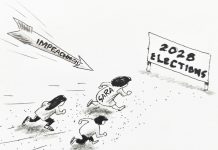In the recent Tokyo undercard, a young Filipino puncher served up a knockout so sharp and quick, Japanese fans jumped out of their seats in respectful awe. In another gym, only miles away in General Santos, another youth was caught on camera throwing jabs eerily similar to a southpaw legend. These are not random moments of genius—these are unmistakable signs that Filipino boxing is giving birth to a new era, owing to the fists that once held the throne.
What we see taking place before our eyes today is the aftermath of a hurricane called Manny Pacquiao. From poverty in Sarangani to international superstardom, his path was no ordinary story—it was an earthquake that remolded the Filipino psyche. Before him, our boxing heroes lived in the shadows of foreign titans. But Pacquiao punched a hole through that ceiling. And now, from Benguet to Basilan, we’re seeing boys clutching gloves instead of slingshots, and lacing ambition into every wrap of gauze. They no longer dream of just surviving—they dream of belts, arenas, and anthems played before the world.
It’s not too hard to attribute it all to a “Pacquiao effect”—but that would be to ignore the rich river of Philippine boxing heritage. We had Pancho Villa, the first Filipino world champion, before there were televisions in living rooms. Then Flash Elorde, who fought and danced with equal grace. Pacquiao didn’t just set fire; he entered a room already illumined with candles and set it aflame as a torch, which the others now also bear. The next batches are not imitation. They are heirs, and their blows are loaded with as much baggage and as much hunger.
It would be a dream, though, to think that this golden bountifulness resulted from sheer inspiration only. Behind gritted teeth and granite abs stand underpaid coaches, rings whose canvas is torn asunder, and provinces where sporting equipment is a luxury. There is greatness, yes—but there is also grit. That, in a sense, makes this new generation all the more admirable. They train not in million-dollar gyms but in barangay boxing clubs where water drips and punching bags are hung off rusting chains. But they win. Because once you’ve witnessed someone like you do it, the map of the world somehow becomes smaller.
And the craving isn’t merely for glory—it’s also for identity. These boxers aren’t merely entering rings; they’re entering the story about what it is to be Filipino in a bruised, imbalanced world. Each uppercut a Filipino boxer flings is, in itself, a slap on poverty that still clips the wings of our youth. Boxing is not just a sport. It’s a cultural revolution. A silent revolt. It’s a way of saying, “You may forget us in Congress or schools—but never here, never in the ring.” Complacency, however, is now the danger. That we will revere the stories, revere the heroes, and turn our backs on the system that breaks and makes them.
Too many of these fighters are still underpaid, overworked, and beholden to dubious promoters. Without real institutional support, without proper medical care, financial education, and after-care services, they risk becoming broken men—heroes on the highlight reels but panhandlers on the streets. For each world champion, dozens don’t make it, whose bodies are wrecked before they are thirty, whose names we’ve forgotten.
If we’re really going to honor Pacquiao’s roots and the champions who preceded him, we need to go beyond cheering ringside. We must invest wisely in grassroots development, athlete protection, and fair boxing governance. We must save the dreamers, not the dreams. Let the Department of Education investigate boxing scholarships. Let municipal governments construct rings where one can test ability without harm. Let us not squander our young boxers as motivational underdog tales yet to be told.
The future of Filipino boxing is banging its fist into motion. No longer a question of if—it’s a matter of taking care of it. We’ve witnessed the flame. Let us ensure that it does not go out. Let the next generation of champions not emerge out of chance or legend, but out of a people finally willing to stand behind them, round after round.




